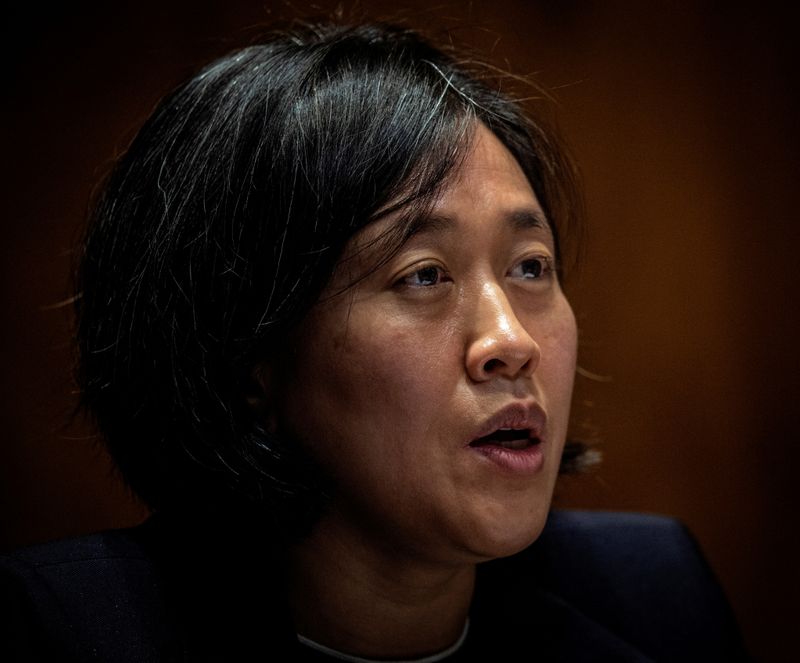WASHINGTON (Reuters) -U.S. Trade Representative Katherine Tai said she is optimistic that the United States and Europe can settle a longstanding dispute over aircraft subsidies, leaving them free to focus on larger issues, including China’s nascent aircraft industry.
Tai, who is working to reset trade ties with allies across the world after former President Donald Trump’s tariff wars, declined to give any details about her talks with the European Union and Britain on the dispute, but struck an upbeat tone.
“It’s impossible to predict the organic development of any negotiation. But I want to underscore how optimistic I am,” Tai told Reuters in an interview late Wednesday. “We are giving it everything we’ve got. I also feel confident that that is being reciprocated across the table.”
The European Union’s trade chief Valdis Dombrovskis last week said Brussels and Washington were working to resolve the dispute over subsidies to aircraft makers by July 10.
Both sides agreed in March to suspend tariffs on billions of dollars of imports in a 16-year-old dispute at the World Trade Organization over subsidies for planemakers Airbus and Boeing. The suspension runs until July 10, with tariffs re-applying on July 11 if there is no solution
Asked how close the two sides were, Tai said simply, “fingers crossed.”
She said she was encouraged by Dombrovskis’ leadership and partnership, and would do everything in her power to create the “maximum conditions for success.”
“It took 16 years, but we finally got here. I just want to preserve every opportunity for us to come to a good outcome,” she said, noting that China had made no secret of its ambitions to become a global player in the commercial aircraft industry.
She added that in the face of this challenge, the U.S. and EU need to “figure out the things that have kept us at each other’s throats for a very long time so that we can turn our attention to the bigger question.”
METALS TARIFFS
Tai and her European counterparts declared a partial truce in a three year dispute over U.S. steel and aluminum tariffs, agreeing not to escalate retaliatory duties.
Dombrovskis said U.S. metals tariffs and the EU’s initial retaliatory duties from 2018 should be removed as soon as possible, adding that the two sides were working on doing this by the end of 2021.
Tai, who meets virtually with her counterparts from the Group of Seven wealthy democracies this week, said tariffs had gotten a lot of attention, but she was focused on formulating a new vision, more worker-centered vision for the global economy.
Asked if Washington would remove steel and aluminum tariffs as Europe expects, Tai said the bigger problem was global market distortion, a reference to overproduction by China. She has insisted that any solution to the metals tariff dispute be tied to a solution to global excess production capacity driven by China.
“We are in the early days on this one, but let me reiterate my sense of optimism that I do see the kind of partnership that we feel like we’ll need from the European Union,” she said.
(Reporting by Andrea Shalal and David Lawder; Editing by Heather Timmons, Kirsten Donovan, Alexandra Hudson)
























